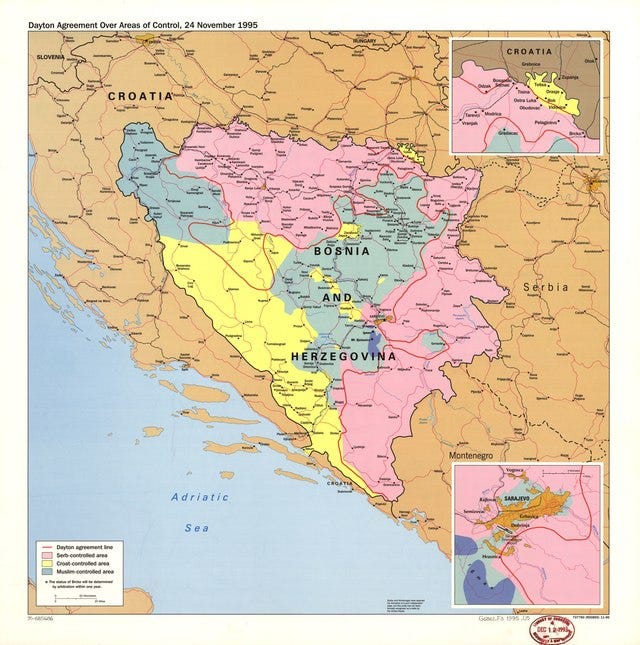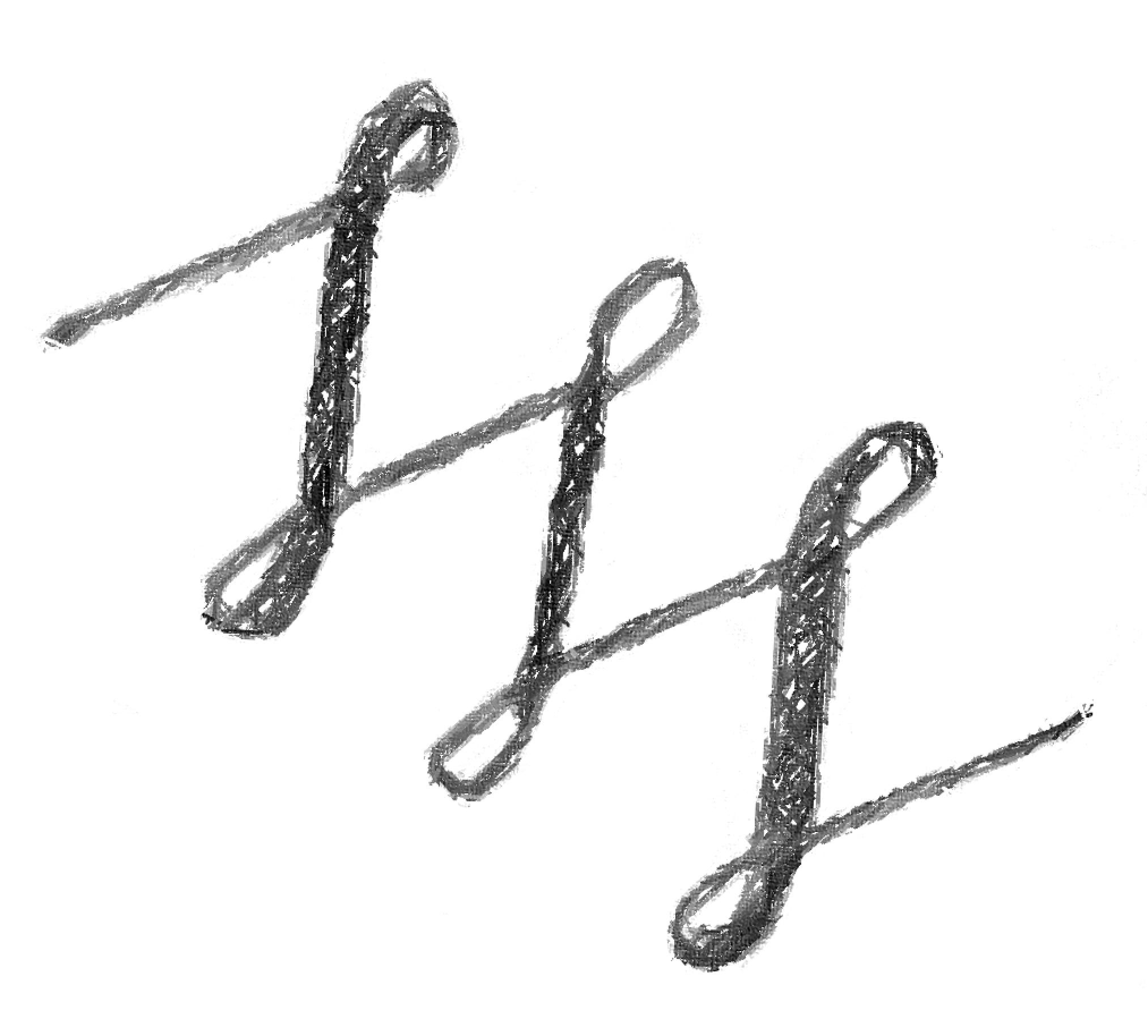Hi all,
Thank you for joining me for today’s song, “Bosnia”, by The Cranberries, an Irish band. The song comes from their 1996 album “To The Faithful Departed”. If you’d like to hear the song before you read the background, I’ve included a YouTube video below the article.
Below, you’ll find my interpretation of the lyrics (written in italics). Comments and questions are welcome. For Japanese students, vocabulary words in bold are provided in Japanese below. TOEFL (PBT) 450+, Eiken 2, CEFR B1.
(617 words)
The Bosnian War happened between 1992 and 1995 in a country called Bosnia and Herzegovina, which used to be part of a bigger country called Yugoslavia. Bosnia had people from different ethnic groups: Bosniaks (mostly Muslims), Serbs, and Croats. When Bosnia decided to become its own country, the different groups couldn't agree on how to share power, which led to a terrible war.
During the war, the groups fought each other, and many people were forced to leave their homes or were killed just because of their ethnic background. This act was called "ethnic cleansing." The Bosnian Serbs, with help from the Yugoslav army, took control of much of the country.
Sarajevo, the capital of Bosnia and Herzegovina, went through one of the longest and hardest times in modern history. This event is called the Siege of Sarajevo, and it lasted almost four years, from April 1992 to February 1996.

The city of Sarajevo was surrounded by Bosnian Serb forces that tried to capture the city. They cut off important supplies like food, water, and electricity while attacking with bombs and snipers shooting at people.
The people of Sarajevo lived in fear because the city was under daily attack. Many buildings were destroyed, and thousands of civilians were killed or injured. There weren’t enough of the basic things people needed to live, so the people in the city had to find creative ways to survive, such as collecting water when it rained and growing small gardens for food.
Some international humanitarian aid was given, but the situation remained serious. The United Nations called Sarajevo a "safe area," but despite this, the attacks continued.
The attack finally ended after NATO began its own bombing of the Bosnian Serb forces. This action, as well as diplomatic efforts, led to the signing of the 1995 Dayton Accords. The agreement ended the fighting and divided Bosnia into two parts: one for the Bosniaks and Croats, and one for the Serbs.

In the song, singer Dolores O’Riordan is thinking about her own safety while reflecting on what happened in Sarajevo.
I would like to state my vision
Life was so unfair
We live in our secure surroundings
And people die out there
Bosnia was so unkind
Sarajevo changed my mind
And we all call out in despair
All the love we need isn't there
And we all sing songs in our rooms
Sarajevo erects another tomb
Sarajevo! Sarajevo! Sarajevo! Sarajevo!
Bosnia was so unkind
Sure, things would change
If we really wanted them to
No fear for children anymore
There are babies in their beds
Terror in their heads
For the love of life!
However, after the war ended, there were groups such as the Kosovo Liberation Army that wanted to take Kosovo from the Serbians who were controlling it. In 1999, NATO and U.S. forces began a bombing campaign aimed at the Serbians. From that point, over 100,000 Serbs left Kosovo, joining the 100,000 who had left during the war. “In total, between 9 and 11 tonnes [tons] of depleted uranium was dropped across all of Yugoslavia.” (Wikipedia, “Bombing of Yugoslavia”).
Atrocities were committed by many sides in the conflict. The conflict left deep scars, with many lives lost and millions of people displaced.
There is a well-known song called When the Saints go Marchin’ In. It is a gospel song that talks of hoping to be among the saints when they enter heaven.
In the last few lines of the song, O’Riordan sings:
When do the saints go marching in?
Rummmpatitum, Rummmpatilum
Traboo, Traboo, Traboo
The words rummmpatitum and traboo are not real words, but they make a sound like someone marching or, possibly, the sound of bombs dropping.
Question:
Why do you think she sings about the song “When the Saints Go Marching In” at the end of this song?
Vocabulary
Muslims イスラム教徒
Serbs セルビア人
Croats クロアチア人
ethnic cleansing 民族浄化
siege 包囲
capture 捕獲
sniper 狙撃兵
humanitarian aid 人道援助
diplomatic 外交 (efforts 努力)
secure 安全
erect 建てる
tomb 墓
depleted uranium 劣化ウラン (Read about depleted uranium on Japanese Wikipedia here)
displaced (person) 難民
Sources:
Encyclopædia Britannica, inc. Bosnian War. Encyclopædia Britannica. https://www.britannica.com/event/Bosnian-War . Accessed 14 Aug 2024.
Mandel, M. (2004a). How America gets away with murder: Illegal wars, collateral damage and crimes against humanity. Pluto Press.
Wikimedia Foundation. NATO bombing of Yugoslavia. Wikipedia. https://en.wikipedia.org/wiki/NATO_bombing_of_Yugoslavia . Accessed 14 Aug 2024.






